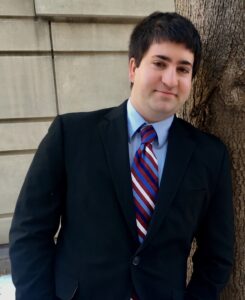FOR FACULTY
The Alex. Brown Center for Entrepreneurship is closely affiliated with faculty members and lecturers from across campus and the business community. They have been involved in the work of the Center since its inception. They bring expertise and real-world experience into the classroom, and they enthusiastically share their knowledge with students and colleagues alike.
BROWN FACULTY DEVELOPMENT INSTITUTES
The Brown Faculty Development Institutes are designed to broaden faculty exposure to concepts of entrepreneurship, and to identify ways for faculty to expand professional skills, better manage research and careers, and infuse existing courses with entrepreneurial concepts so students can benefit. Institutes are held every 1-2 years, and they are developed/coordinated by the Faculty Fellows. Participants attending the Institutes are encouraged to develop proposals for new/infused courses in entrepreneurship.
ENTREPRENEURSHIP AND INNOVATION CURRICULUM GRANTS
Entrepreneurship and Innovation Curriculum Grants provide support for UMBC departments and faculty who introduce entrepreneurial thinking and skills into the curriculum. Proposals that encourage collaboration between two or more departments are highly encouraged.
Request for Proposal information can be found here.
Download and submit this form (Entrepreneurship and Innovation Curriculum Grant Application Form) to apply.
THE HERBERT BEARMAN FOUNDATION
The Herbert Bearman Foundation, Inc., funds projects that can make a difference to the well-being of individuals, either by enduring the lives of people in disadvantaged circumstances or benefiting the general community.
The Bearman Foundation Chair in Entrepreneurship was established by The Herbert Bearman Foundation to acknowledge and honor the contributions of Dr. Arlene Bearman to the UMBC community. This chair recognizes and supports outstanding teaching skills, an interest in entrepreneurship, and a strong record of scholarship in entrepreneurial studies or a field related to entrepreneurship.
The Bearman Chair in Entrepreneurship for 2016-2019 is Dr. Chuck Bieberich. Read More: http://news.umbc.edu/chuck-bieberich-biomarker-tech-innovator-named-bearman-foundation-chair-in-entrepreneurship/
FACULTY IDEA LAB
The UMBC Faculty Idea Lab and Business Park Incubator provide support for faculty who have a research product, disclosure, patent or potential technology business concept they want to turn into a business.
COMMERCIALIZATION & ENTR RESEARCH (CENTRE) FUNDING INITIATIVE
The CENTRE funding is an initiative of the Alex. Brown Center for Entrepreneurship at UMBC and provides funds for research that leads to potential commercialization of a product or service. Any UMBC faculty conducting research in either technical fields (technical entrepreneurship), or social/humanities fields (social entrepreneurship) is encouraged to apply for funding. Faculty who receive funds through this initiative are encouraged to file for a patent, expected to publish their research results and be involved in commercializing the research outcomes. CENTRE funding prepares faculty for TEDCO MII funding (State of Maryland), Catalyst Funds, or possible awards from NEA, NSF, NIH, etc. Interdisciplinary collaborations (e.g. from humanities and technology) with faculty from different UMBC departments are strongly encouraged. Proposals submitted to the CENTRE initiative should contain the following sections:
- Cover Page (1 page – valued at 10% of the proposal)
- Name of Primary Investigator, department, contact information
- Amount requested
- Abstract: Should include what it is about, why it should be funded, the potential for commercial or social impact
- Signature of the department’s Chair (email from the Chair is also fine)
- Research Component: Concept Idea or White paper (1 page – valued at 60% of the proposal): NOTE: The research component should be written in plain language that someone with a university degree in a different discipline should be able to understand the content.
- Description of the research to be done. Emphasis should be given on the importance of the problem and novelty of the proposed solution
- Existing attempts to solve the problem and why they did not come to fruition
- Preliminary results (if any) or indications suggesting that the proposed work is viable
- Milestones, timeline, and budget (only 1 page – valued at 30% of the proposal):
- Milestones with a specific timeline
- Metrics to measure each milestone
- Budget costs with justification for each item. Funds can be used towards student stipend, tuition (graduate and/or undergraduate), faculty summer salary, equipment, etc.
Award amount: Proposers may request up to a maximum of $15,000 for a period of one academic year.
Important Dates
- Call For Proposals: every Spring semester
- Submission date: April 1. Email proposals to Vivian Armor, Director of the Alex. Brown Center of Entrepreneurship (armor@umbc.edu) and George Karabatis (georgek@umbc.edu)
- Proposal reviews: The submitted proposals are reviewed during early Summer
- Announcement of Award(s): June 1
- Start date: Beginning of Fall semester
- End date: End of Spring semester (start and end date are in the same academic year)
Evaluating Committee
- ENTR Faculty Fellows
- Director of the Alex. Brown Center for Entrepreneurship
- Director of ENTR Minor
- GPD of MPS on Entrepreneurship, Innovation, and Leadership
- Entrepreneurs in Residence
- Wendy Martin
- Amy Froide
Distribution of Funds and mid-year review
- The funds are transferred at the beginning of the Fall semester following submission of the proposal. They are to be used during the same academic year (Fall and Spring)
- At around the mid-point of the effort, there will be a review showcasing successful completion of the milestones up to that point and ensuring progress towards the final goal
https://entrepreneurship.umbc.edu/wp-content/uploads/sites/39/2019/05/CENTRE-Proposal.pdf
Questions? Feel free to contact George Karabatis (georgek@umbc.edu)
DIRECTOR FOR ENTREPRENEURSHIP AND INNOVATION MINOR
Entrepreneurship and Innovation Minor Chairs the Entrepreneurship Coordinating Committee which has broad oversight of the Minor, including changes in the structure of the Minor, approval of courses to be counted towards the Minor, and approval of new courses not in an existing department. Dr. George Karabatis, Associate Professor, Department of Information Systems, is the current Director.
Dr. Karabatis holds degrees in Computer Science (Ph.D. and M.S.) and Mathematics (B.S.). His research interests are on various aspects of database systems, including semantic information integration, and applications for mobile handheld devices. Before joining UMBC he was a Research Scientist at Telcordia Technologies (formerly Bellcore) working on database related research for the telecom industry. His research work has been published in journals (such as Journal of Database Management, Decision Support Systems, Information Systems Frontier, Distributed and Parallel Databases, IEEE Computer), conference proceedings and book chapters.
FACULTY FELLOWS
Dr. Michael Andrews CAHSS
| Phone |
443-812-4538
|
|---|---|
| mandrews@umbc.edu | |
| Education |
PhD, Economics, The University of Iowa
B.A. Economics, University of Maryland
|
About
Dr. Andrews is an assistant professor in the economics department. His research and teaching focus on the economics of innovation and entrepreneurship, as well as economic history. He is co-editor of The Role of Innovation and Entrepreneurship in Economic Growth (University of Chicago Press, 2022).
To read more about Dr. Andrews, click on the link here.
Dr. Stephen Miller CNMS
| Phone |
410-455-3381
|
|---|---|
| stmiller@umbc.edu | |
| Education |
PhD, Massachusetts Institute of Technology (1991)
BS, Case Western Reserve University (1984)
|
About
Dr. Miller is a professor in the department for biological sciences, having teaching interests in Introductory Biology, Genetics, RNAi, Gene Expression.
To read more about Dr. Miller, click on the link here.
Dr. Tim Oates COEIT
| Phone |
(410) 455-3082
|
|---|---|
| oates@cs.umbc.edu | |
| Education |
Ph.D., Computer Science, U.Massachusetts, Amherst, 2000
M.S., Computer Science, U. Massachusetts, Amherst, 1997 B.S., Computer Science, B.S., Electrical Engineering, 1989 |
About
Dr. Oates’ recent work has explored deep neural networks for weakly supervised EEG denoising for brain-machine interfaces, human-in-the-loop deep reinforcement learning to train robots using video demonstrations, and learning declarative representations of the functionality of “found” hardware using black box methods. Ongoing efforts include novel methods for learning semantically rich compositional sentence embeddings, learning policies for monitoring and updating deployed deep learning models to maintain performance in the face of domain shifts, and unsupervised methods for learning grounded, relational policies for understanding and control of real and simulated environments.
To learn more about Dr. Oates’ research pursuits, read his research profile.



